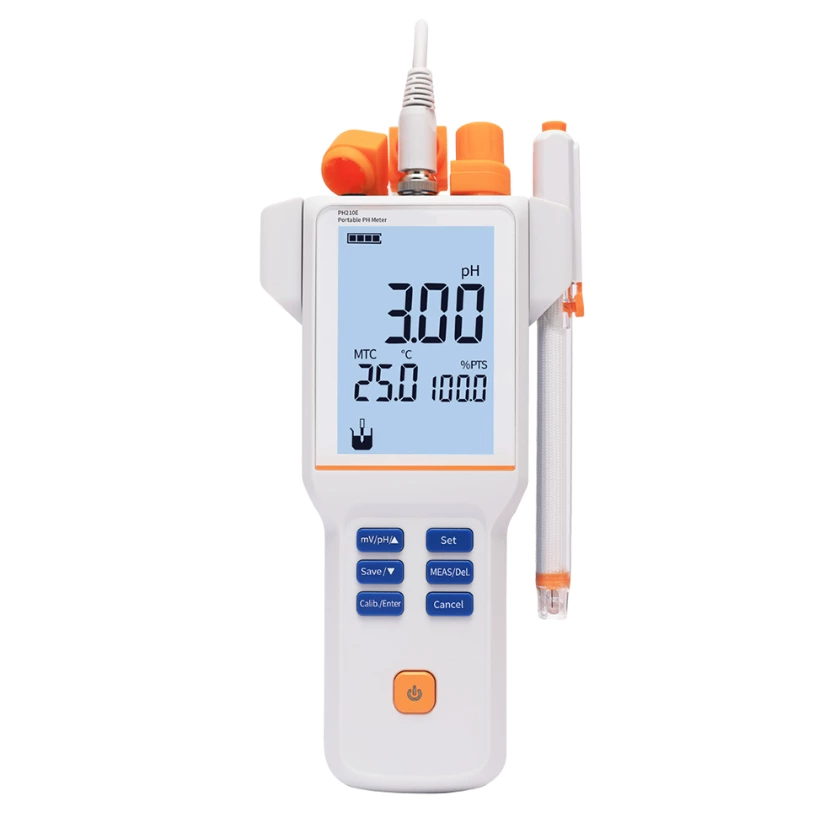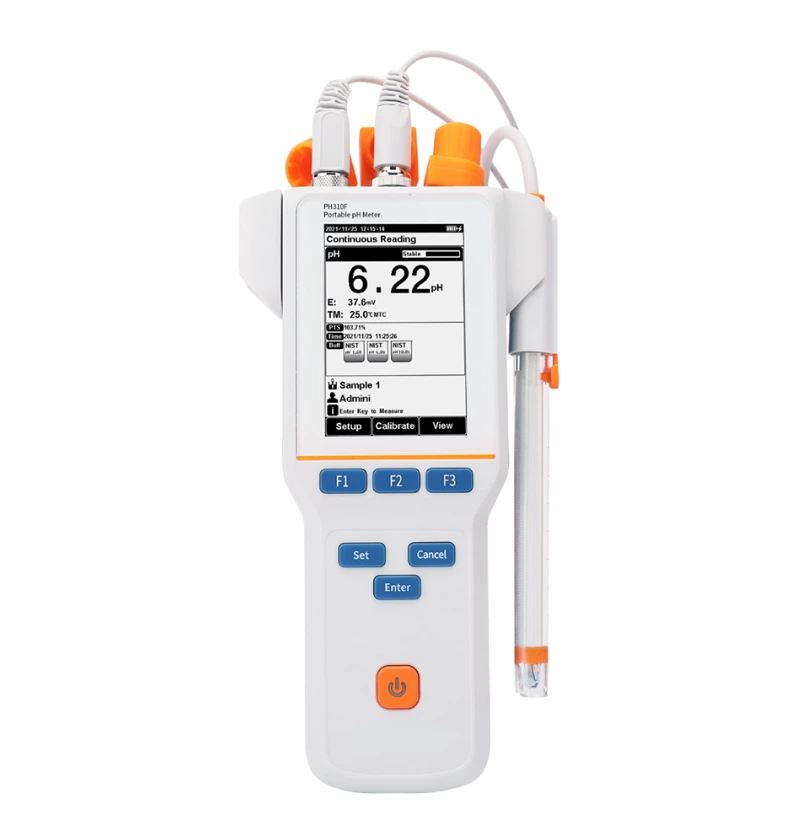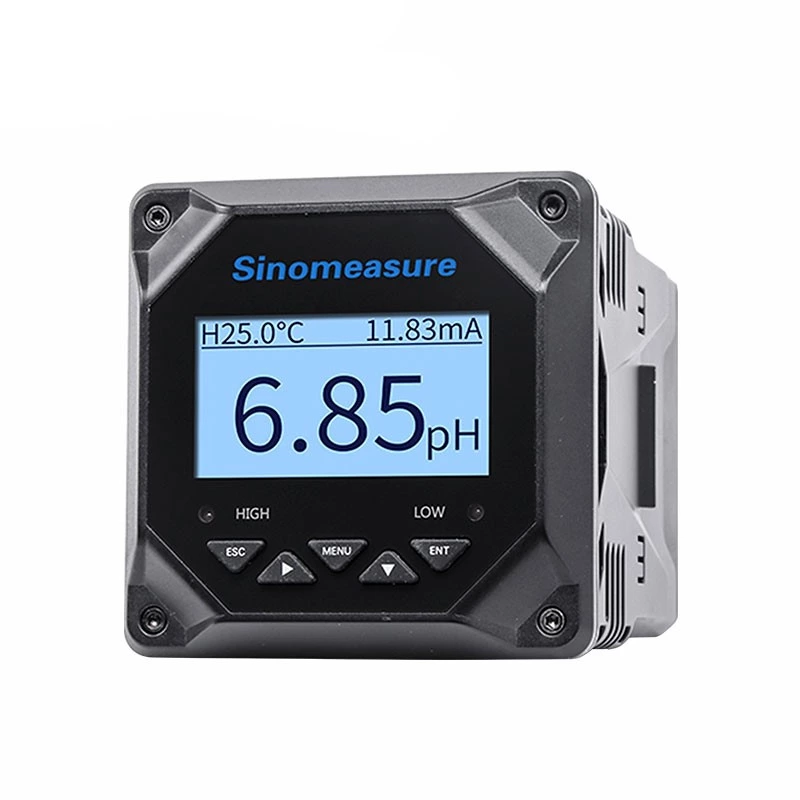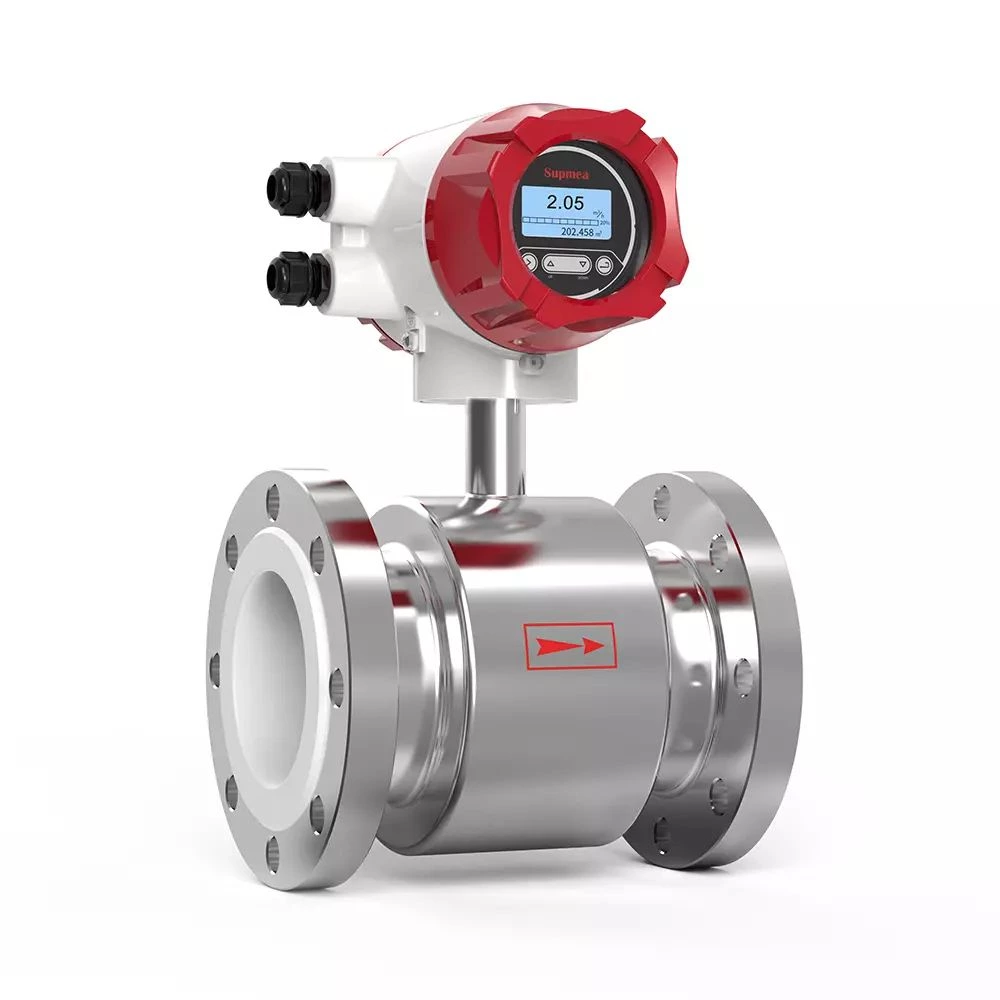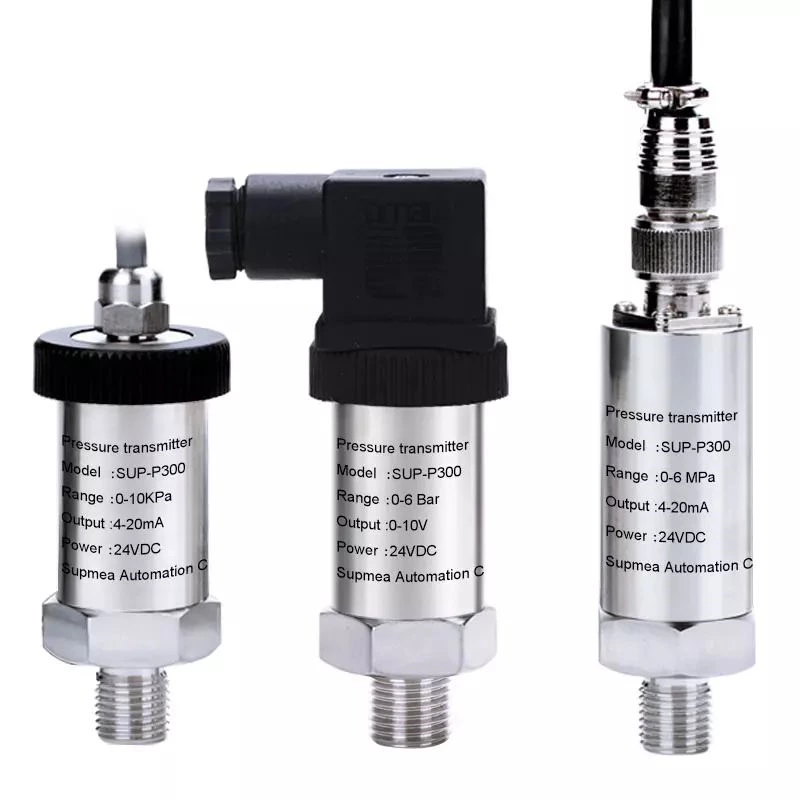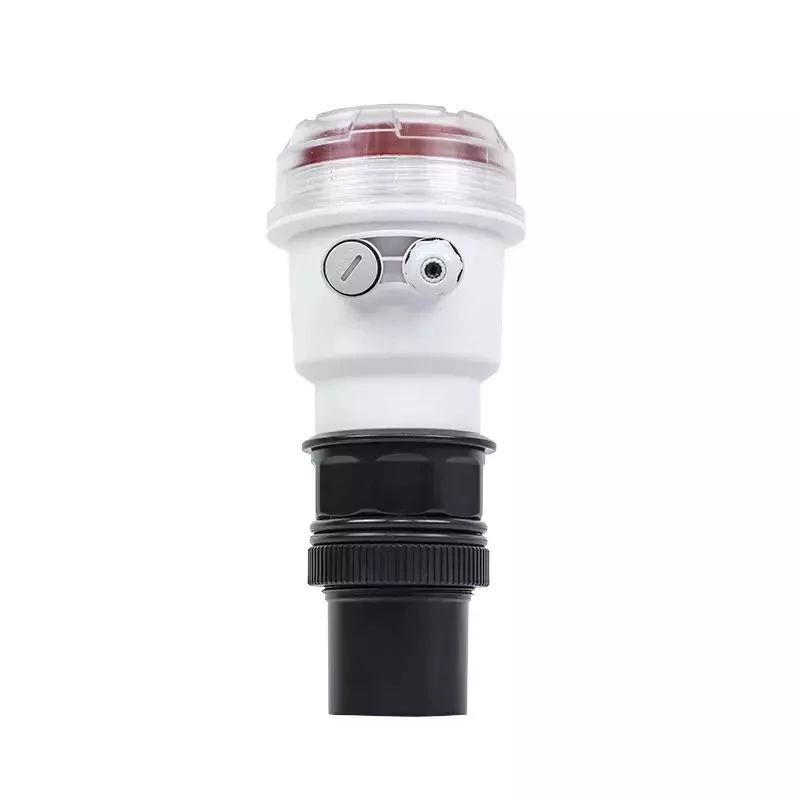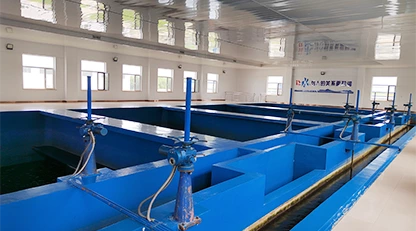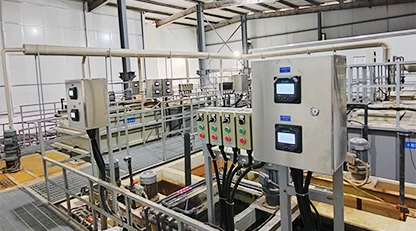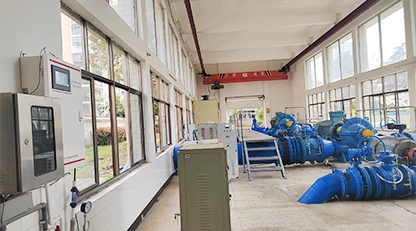Introduction
A pH meter is a scientific instrument used to measure the acidity or alkalinity of a liquid. It is commonly used in industries such as agriculture, food, and water treatment to ensure that the pH levels of their products or processes are within the desired range. In the past, pH meters were only available in large and stationary forms. However, with the advancements in technology, portable pH meters have been developed and are now widely used.
What is a pH Meter?
A pH meter is an electronic device used to measure the acidity or alkalinity of a solution. It consists of a pH electrode and a meter that displays the pH reading. The pH electrode is a glass tube containing a reference electrode and a measuring electrode. The reference electrode is a stable electrode that maintains a constant potential, while the measuring electrode measures the pH of the solution by detecting the concentration of hydrogen ions.
Types of pH Meters
There are two main types of pH meters: benchtop pH meters and portable pH meters.
Benchtop pH Meters
Benchtop pH meters are large, stationary devices that are commonly used in laboratories and research facilities. They are often used in applications that require high accuracy and precision. Benchtop pH meters are typically connected to a power source and are not portable.
Portable pH Meters
Portable pH meters, on the other hand, are small, handheld devices that can be taken to the field or used in the laboratory. They are battery-powered and often have a digital display that shows the pH reading. Portable pH meters are typically less accurate than benchtop pH meters, but offer the advantage of convenience and portability.
Features of Portable pH Meters
Portable pH meters have several features that make them popular among professionals and hobbyists alike.
Size and Portability
One of the most significant advantages of portable pH meters is their size and portability. They are small enough to be carried in a pocket or a backpack, making them ideal for fieldwork and outdoor activities.
Battery Life
Portable pH meters are battery-powered, and their battery life is an important consideration when choosing a model. Battery life can vary depending on the model, but most portable pH meters have a battery life of around 100 hours.
Waterproofing
Many portable pH meters are waterproof or water-resistant, which is essential for applications that involve liquids. Waterproofing also makes the device more durable and long-lasting.
Range and Accuracy
Portable pH meters have a range of pH values that they can measure, typically between pH 0 and pH 14. However, some models may have a narrower or wider range depending on their intended application. It is important to choose a pH meter with a range that is suitable for the specific application.
Accuracy is another important feature of portable pH meters. While benchtop pH meters are generally more accurate than portable pH meters, the accuracy of portable pH meters can vary depending on the model. The accuracy of a pH meter is typically expressed as a percentage of the full scale or in pH units. It is important to choose a pH meter with a high level of accuracy, especially for applications that require precise pH measurements.
Advantages of Portable pH Meters
Portable pH meters offer a range of advantages that make them a popular choice for professionals across a variety of industries. One of the key benefits is their convenience. These meters are lightweight and easy to transport, making them ideal for use in the field or on the go. This means that professionals can take accurate pH readings wherever they are, without having to rely on stationary equipment.
Another advantage of portable pH meters is their cost-effectiveness. These devices are generally more affordable than larger, stationary units, making them an attractive option for businesses with limited budgets. Additionally, because portable pH meters are often battery-powered, they can help to reduce energy costs and save money in the long run.
In addition to being convenient and cost-effective, portable pH meters are also time-saving. Because they can be used on-the-spot, professionals can quickly and easily take readings without having to wait for lab results. This can save valuable time and help to speed up decision-making processes.
Finally, portable pH meters are versatile. They can be used in a variety of settings, from laboratories to industrial plants, and can be used to measure pH levels in a wide range of substances, including liquids and solids. This versatility makes them an ideal tool for professionals in a variety of fields, from food and beverage production to environmental monitoring.
The advantages of portable pH meters make them a valuable tool for professionals across a range of industries. Whether you're looking for convenience, cost-effectiveness, time-saving capabilities, or versatility, these devices offer a range of benefits that can help to improve your workflow and increase productivity.
Calibration of Portable pH Meters
Calibration of portable pH meters is an essential task in ensuring accurate readings and reliable results. There are different methods of calibration, including single-point, two-point, and three-point calibration.
Single-point calibration involves the use of a solution with a known pH level, which is used to adjust the meter's reading. This method is simple and quick but may not be as accurate as the other methods.
Two-point calibration involves the use of two solutions with known pH levels, usually a pH 4 and a pH 7 solution. The meter is adjusted to read the correct value at each point, ensuring accuracy across a wider range of pH levels.
Three-point calibration is the most accurate method and involves the use of three solutions with known pH levels, usually a pH 4, pH 7, and pH 10 solution. The meter is adjusted at each point to ensure accuracy across the entire range of pH levels.
It is important to note that calibration should be performed regularly, especially if the meter is used frequently or exposed to extreme conditions. Calibration ensures that the readings are accurate and reliable, which is crucial in scientific research, environmental monitoring, and other applications where pH measurement is critical.
In general, calibration of portable pH meters is a vital task that should not be overlooked. The choice of calibration method depends on the level of accuracy required, and regular calibration ensures reliable and accurate results.
Maintenance of Portable pH Meters
Portable pH meters are essential tools for measuring the acidity or alkalinity of various substances. To ensure accurate readings and prolong the lifespan of these devices, proper maintenance is crucial. One of the most important aspects of maintenance is regular cleaning. After each use, the meter should be wiped down with a soft cloth to remove any residue or debris. If necessary, a mild detergent can be used to clean the electrode. It is also recommended to use a cleaning solution specifically designed for pH meters at least once a week to remove any buildup that may affect accuracy.
Proper storage is also essential for maintaining the performance of portable pH meters. When not in use, the electrode should be kept moist in a storage solution or distilled water. The meter itself should be stored in a dry, cool place, away from direct sunlight and extreme temperatures. It is also important to ensure that the electrode does not come into contact with any hard surfaces or other objects that may damage it.
Over time, electrodes can become worn or damaged, leading to inaccurate readings. To ensure consistent performance, it may be necessary to replace the electrode periodically. This can be done by carefully removing the old electrode and attaching a new one according to the manufacturer's instructions. It is important to note that different types of electrodes may require different replacement procedures, so it is important to consult the user manual or contact the manufacturer for guidance.
Proper maintenance of portable pH meters is essential for accurate readings and prolonged lifespan. Regular cleaning, proper storage, and periodic electrode replacement are all important aspects of this maintenance. By following these guidelines, users can ensure that their pH meters continue to provide reliable results for years to come.
Choosing the Right Portable pH Meter
When it comes to selecting the right portable pH meter, there are several factors to consider. First and foremost, you need to determine the specific application for which the meter will be used. This will help you identify the necessary features and specifications required for accurate readings.
Another important consideration is your budget. Portable pH meters can vary greatly in price, so it's essential to establish a budget before beginning your search. Keep in mind that while cost is a significant factor, it's important not to sacrifice accuracy and reliability for a lower price point.
Brand and reputation are also crucial factors to consider when choosing a portable pH meter. Look for brands with a proven track record of producing high-quality, reliable instruments that have been tested and validated by industry professionals.
Ultimately, selecting the right portable pH meter requires careful consideration of your specific needs, budget, and the reputation of the brand you choose. By taking the time to do your research and make an informed decision, you can ensure that you select a meter that will meet your needs and provide accurate, reliable results.
FAQs
What is a portable pH meter?
A portable pH meter is a handheld device used to measure the pH of a liquid or solution. They are small, lightweight, and easy to use, making them a convenient option for on-the-go pH testing.
How do I calibrate my portable pH meter?
To calibrate your portable pH meter, you will need to use a calibration solution with a known pH value. Follow the manufacturer's instructions for calibrating your specific pH meter model.
Can I use a portable pH meter for solids?
No, portable pH meters are designed to measure the pH of liquids and solutions only. To measure the pH of solids, you will need a different type of instrument, such as a pH electrode or a pH test strip.
How often should I replace the electrode on my portable pH meter?
The frequency of electrode replacement will depend on the frequency of use, the type of samples being tested, and the care taken in cleaning and storing the electrode. Most manufacturers recommend replacing the electrode every 6-12 months.
Are portable pH meters waterproof?
Not all portable pH meters are waterproof, but many models are water-resistant. Check the specifications of the pH meter before purchasing to ensure that it can withstand the intended application.
 Español
Español Русский
Русский 
